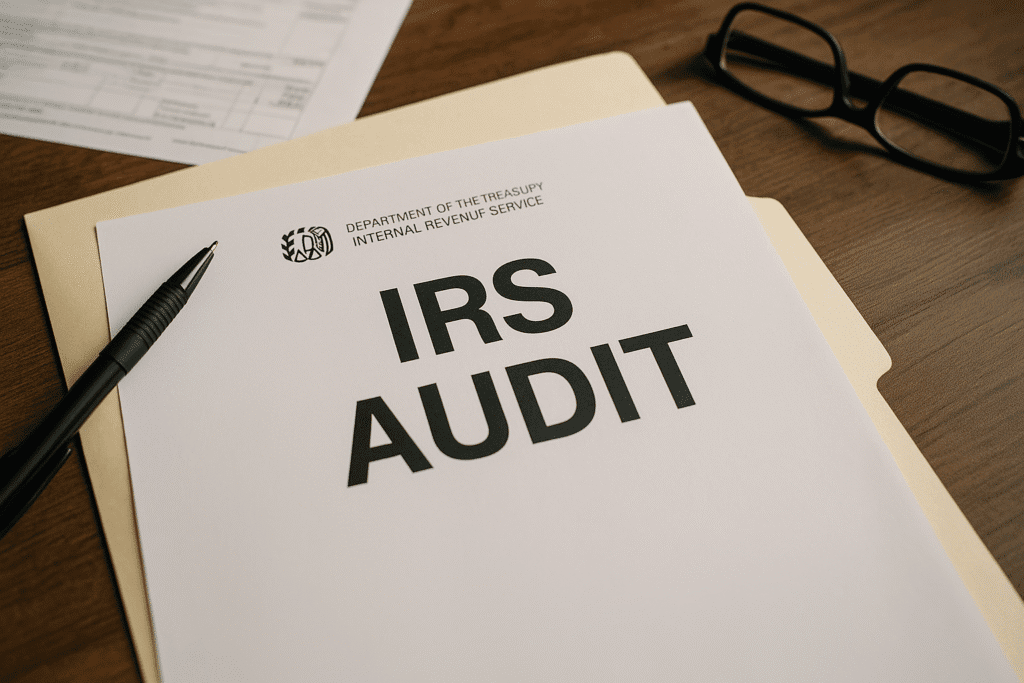Practice Areas
IRS Collection Matters
Overdue tax filing? Be prepared to receive a bill from the IRS. This begins the IRS collection process, which continues until the bill is cleared, interest and penalties are paid in full, or the legal collection period has expired. Not an ideal situation, right? This is where Mixon Tax Law comes in as your tax relief attorney in Houston.
Attorney Phillip Mixon has been fighting IRS collection cases for years, and the collection division doesn’t hesitate. They have powers that would make other creditors envious, and they’re not shy about using them. What starts as a simple unpaid tax bill can turn into a financial nightmare faster than most people believe possible.
What Are IRS Collection Matters?

IRS collection is fundamentally different from regular debt collection. When taxpayers owe money to a credit card company or bank, those creditors have to sue and get a judgment before they can garnish wages or seize assets. The IRS? They can do all that without ever seeing the inside of a courtroom.
They’ve got ten years to collect from the date they assess the tax, and during that time, they can make life miserable in ways that other creditors can only dream of. Bank levies, wage garnishments, property seizures—and they can do it all with minimal advance notice.
The worst part is how fast things escalate. People go from receiving their first collection notice to having their bank account cleaned out in a matter of weeks. The firm’s collection defense blog explains these procedures in detail, but the bottom line is this: time is not your friend when dealing with IRS collections.
IRS Collection Services
Settle Tax Debt with IRS
Once taxpayers receive a bill from the IRS, it can amount to thousands or millions of dollars. The amount also grows rapidly and can quickly spiral out of control. Not being able to pay the bill can lead to further legal actions such as garnished wages and a lien being placed on property, among other repercussions. Taxpayers—individuals and businesses—can feel overwhelmed when faced with such difficult circumstances.
Taxpayers can opt for IRS tax debt settlement, but they may lack the legal insights required to do so effectively. Fortunately, Mixon Tax Law can help settle tax debt with the IRS.
IRS Tax Debt Help: Taxpayers Have Options

Offer In Compromise
These are offers made by taxpayers to the IRS to settle tax debt for less than the full amount owed. It's then up to the IRS to assess whether there's reasonable potential for collecting the full amount or not. Having experienced legal representation significantly improves chances of getting an OIC accepted, as the application process is complex and unforgiving of mistakes.

Installment Agreement IRS
When tax debt reaches a certain limit, taxpayers may not have the means to fulfill obligations through a single large payment. Mixon Tax Law negotiates with the IRS to work out favorable payment plans that taxpayers can actually afford. Once an installment agreement is in place, the IRS is legally required to stop wage garnishments and other enforced collection activities.

IRS Currently Not-Collectible Status
This is a special status given to taxpayers who don't qualify for other tax relief options like an OIC or installment agreement. The firm can help request that the IRS place accounts in currently not-collectible status. The IRS discontinues enforcement actions and releases all levies once an account receives this status.

Innocent Spouse Tax Relief
IRS spouse tax debt relief, in certain situations, relieves one spouse from paying additional taxes. It's only applicable if the other spouse has understated taxes due on a joint tax return or if taxpayers live in a community property state. Thanks to the IRS Restructuring and Reform Act of 1998 (RRA 98), the process for obtaining innocent spouse relief has become more equitable.

Wage Garnishment Release
If taxpayers owe the IRS, they may use wage garnishment to collect taxes and penalties. A wage garnishment allows employers to withhold a portion of pay and send that portion to the IRS. In most cases, taxpayers aren't even left with enough money to pay ordinary living expenses each month. Mixon Tax Law works aggressively to get wage garnishments released as quickly as possible.

Bank Levy Release
IRS bank levies can wipe out checking and savings accounts without warning, leaving taxpayers unable to pay bills or meet basic living expenses. The firm handles emergency levy releases and works to prevent future seizures while resolving underlying tax debt.

Property Lien Resolution
Federal tax liens can destroy credit and prevent taxpayers from selling or refinancing property. Mixon Tax Law helps clients get liens released, subordinated, or withdrawn depending on specific circumstances and compliance history.

Collection Due Process Appeals
Taxpayers have the right to appeal most IRS collection actions through the Collection Due Process (CDP) procedures. These appeals can stop collection activity while challenging the underlying liability or proposing alternative collection arrangements.
Can you negotiate with the IRS? While it's technically possible, strong advisement exists against trying to handle these matters without representation. The IRS collection system is designed to maximize revenue collection, and they have no incentive to give taxpayers the best deal possible. Although all these tax relief options are available, experienced legal representation is needed to navigate them successfully.
Frequently Asked Questions
IRS Collection Process & Timeline
That’s the worst approach possible. They start with polite letters, but ignoring them just escalates the situation. Eventually, taxpayers wake up to find paychecks garnished or bank accounts empty. The earlier the situation is addressed, the more options exist.
Settlement Options & Negotiations
Collection Actions & Relief
Absolutely, and this is where things get really dangerous. They can levy business accounts just like personal accounts, and when operating capital disappears overnight, businesses can be finished. Companies have had to close their doors because of surprise bank levies.
Rights & Protections
Why Choose Mixon Tax Law for IRS Collection Defense
Collection cases are different from audits or other tax disputes—they’re emergencies. When someone calls about a wage garnishment or bank levy, everything gets dropped because they’re in crisis mode. Learn more about Phillip’s background and understand why this approach has worked for so many clients facing these devastating situations.
His CPA background helps analyze financial situations and present them to the IRS in the most favorable light possible. But it’s the legal training that really matters in collection cases—knowing how to navigate procedural requirements, protect rights, and push back when the IRS overreaches.
Here’s what Mixon Tax Law brings to collection cases:
Dual Professional Credentials
CPA expertise in financial analysis combined with legal advocacy skills provides comprehensive collection defense capabilities.
Previous Employer's Firm Experience
Background at a previous employer's firm provides sophisticated understanding of complex financial situations that translate into effective IRS negotiations.
Immediate Response
Collection emergencies require immediate action, and Phillip personally handles urgent situations to prevent further financial damage.
Litigation Experience
Ready to take cases to Tax Court when collection actions are inappropriate or illegal. This willingness to fight strengthens negotiating positions.
Houston Market Knowledge
Established relationships with local IRS collection personnel can facilitate faster resolutions and more productive negotiations.
If currently facing tax issues and requiring legal help, Mixon Tax Law is just a click away. Don't let IRS collection actions destroy financial life when experienced representation can often achieve reasonable resolutions that protect assets and future prospects.
Client Success Stories
IRS collection cases can be terrifying, but experienced representation often makes the difference between financial disaster and manageable outcomes. Read detailed client testimonials to see the results achieved for individuals and businesses facing serious collection actions.
Trustindex verifies that the original source of the review is Google. Phillip is extremely knowledgeable and was a pleasure to work with. He communicated with me throughout the entire process, asked all the right questions, and ended up saving me more money than I could have imagined. I highly recommend Mixon Law.Trustindex verifies that the original source of the review is Google. Mr Mixon has been a great help on my case, he’s very professional and caring about his clients. I would highly recomend him for any tax problems, he will make sure you understand every step of the wayTrustindex verifies that the original source of the review is Google. Having the pleasure of working with Phil over the past few months - I have learned that Philip Mixon is a top-tier tax attorney specializing in tax controversy and R&D tax credits. His deep expertise and client-focused approach ensure businesses get the results they need. Philip has successfully helped countless clients navigate complex tax matters, making him the go-to tax attorney in Houston and the surrounding areas. If you're looking for trusted tax law guidance in Houston, The Woodlands, Sugar Land, or beyond, Philip Mixon is the expert to call.Trustindex verifies that the original source of the review is Google. Worked with Phillip on my tax issues and was very helpful. Very professional made it easy . Definitely recommend .Trustindex verifies that the original source of the review is Google. Mr. Mixon helped me setup my LLC and non-profit subsidiary. He was highly responsive, even if he was unavailable at the moment, and demonstrated the type of reliable professionalism that is rare in this day and time. I highly recommend his services!Trustindex verifies that the original source of the review is Google. Phillip was extremely kind, courteous and professional in answering all my tax-related questions. Thank you for your help!Trustindex verifies that the original source of the review is Google. Great experience. Phillip was very professional and pleasant to work with. He successfully resolved my issue which saved me money, time, and stress! I would definitely work with him again if the need arises.Trustindex verifies that the original source of the review is Google. Mr. Mixon has assisted my family on getting our business and personal tax issues in order. He’s a great tax attorney that is very knowledgeable. professional, and efficient. I would highly recommend his legal expertise, and I would definitely use his services in the coming years if the need arises.Trustindex verifies that the original source of the review is Google. Mr. Mixon has been such a blessing to me. He has assisted me in getting my business and my personal taxes in order. He is professional, kind, responds promptly, knowledgeable, and is just such a wonderful person. If you are in need of legal and or accounting services I highly recommend him.Trustindex verifies that the original source of the review is Google. Mr. Mixon with Mixon Tax Law resolved our case, during the process kept great communication with us every step of the way. Definitely five star service, if I could give more stars I would. Top notch Law firm, HIGHLY RECOMMEND
Meet Your Tax Relief Attorney
When facing IRS collection actions, clients want someone who has actually handled these emergencies before and knows what works under pressure. Phillip’s background combines previous employer’s firm accounting experience with focused legal practice in tax controversy matters.
Meet Attorney Phillip Mixon, a seasoned tax attorney in Houston with years of experience handling complex tax matters. From resolving IRS collections to providing tax planning for businesses, his wealth of experience and professional background guarantee that clients receive reliable legal representation in all tax-related matters.
He’s not just a local tax attorney; he’s also a Certified Public Accountant (CPA), a dual qualification that sets him apart in the field of tax law. Holding both his CPA license and Texas bar license, he offers a unique blend of legal and financial acumen that benefits clients in multifaceted ways.
Visit the attorney profile to learn more about qualifications and approach to IRS collection defense representation.

Get Immediate Help with IRS Collection Issues
Collection emergencies don’t wait for business hours. If the IRS just garnished wages or levied a bank account, help is needed immediately, not next week. Call Mixon Tax Law right now if facing any collection action.
Call (713) 814-4737 and Phillip will personally take the call if it’s a collection emergency. These situations move fast, and every day of delay can cost money taxpayers can’t afford to lose.
Whether the IRS just hit with a garnishment, emptied a bank account, or taxpayers are staring at collection notices wondering what comes next, don’t try to handle this alone. The IRS collection system is designed to separate people from their money as efficiently as possible—representation is needed to slow them down and find alternatives.
After years of handling these cases, what works and what doesn’t when it comes to stopping IRS collection actions and negotiating reasonable solutions is clear. Don’t let them destroy financial life when options exist to protect taxpayers.
Tax Relief and Collection Defense Resources
Understanding rights and options during IRS collection proceedings is crucial for making informed decisions about cases. The firm’s tax relief blog regularly covers collection defense topics, recent developments in tax law, and practical strategies for dealing with IRS enforcement actions.
Business Tax | IRS | Local Tax | International Tax
Phillip also provides educational seminars for other attorneys and tax professionals on collection defense topics and maintains active involvement in tax law organizations to stay current on developing issues that affect clients.

Tax Lawyer vs Tax Accountant: Choosing the Right Expert for Your Tax Needs

When Is IRS Audit Representation Necessary for Your Case

Key Insights on Business Taxes in Texas for 2025

How Much Does A Tax Attorney Cost?

Understanding the State and Local Tax Deduction

How a Tax Resolution Specialist Can Help You With IRS Problems
Experienced IRS Collection Defense You Can Trust
Phillip’s career began at a previous employer’s firm, one of the Big Four accounting firms, where he honed his skills in the Mergers and Acquisitions (M&A) tax department. At that firm, he played a pivotal role in advising clients on the tax implications of corporate transactions, ensuring compliance, and optimizing tax outcomes during high-stakes deals. This experience provided invaluable insights into the complexities of tax law and corporate finance, which he now leverages in current practice.
Today, he focuses practice on IRS and state controversy matters. His extensive background allows him to handle disputes with taxing authorities expertly. As a top local tax professional, he provides strategic advice and representation to business owners and individuals facing audits, assessments, and aggressive collection actions.
Whether it’s negotiating with the IRS, contesting state tax determinations, or navigating complex tax regulations, clients can trust they are in capable hands. His boutique tax law firm combines the sophistication of large firm experience with the personalized attention of a local practice, delivering results that protect assets and futures.
